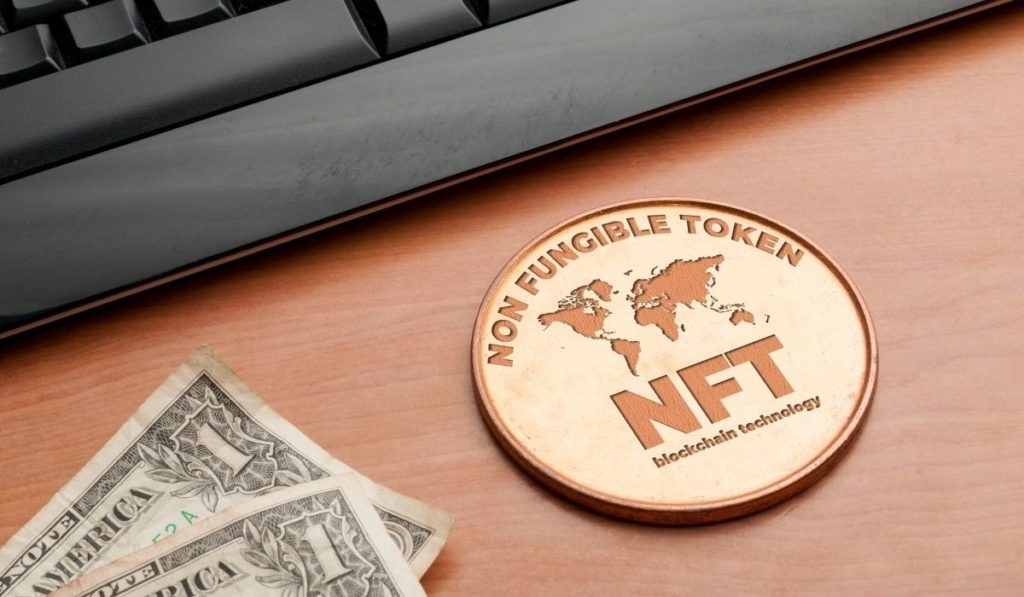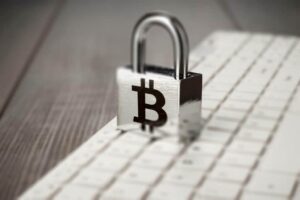Enter the thrilling realm of cryptocurrency, where wash-trading is common, and the allure of overnight riches often obscures reality. Crypto trading is ever-changing, riding the waves of technological innovation and an influx of new assets, products, and services.
However, one aspect remains constant: the human condition. Many view trading as a gamble, and they may be right. Yet, some have yet to unlock their potential for success. Trading is an art form. It requires emotional resilience, sharp intuition, and unparalleled intellectual prowess like no other endeavor. However, one of the main aspects is safety, and human factors in safeguarding assets play a key role.
The Problem of Crypto Security
Cryptocurrencies secure digital money through cryptography. Picture this: You want to send a shrine filled with impenetrable diamonds to your friend in another country. To ensure safe delivery, you lock it tightly with an unbreakable key. When your friend receives the shrine, she can’t open it without your key. However, she can add her own lock to the shrine and send it back to you. Once you verify that her lock is genuine, you can remove your own lock and return it to her. Now, she can access the diamonds. This is how cryptography safeguards crypto-assets.
Most cryptocurrencies, like Bitcoin, Ethereum, and Solana, operate on decentralized networks that use blockchain technology. Blockchain is a permanent ledger that records all crypto transactions. A network of computers validates these transactions and adds them to the ledger. Because of its decentralized nature, no central authority can manipulate the asset.
While you can leave your coins and tokens on centralized cryptocurrency exchanges, the risk of hacks makes it safer to keep your assets in a wallet. Cloud-based wallets are popular but vulnerable to hacks, just like exchanges. A more secure option is cold storage, which involves using a flash drive that requires a private key for access. Regardless of the wallet you choose, losing your private key means losing your stored cryptocurrency forever. In fact, millions of Bitcoins worth billions of dollars are permanently lost due to misplaced or forgotten keys.
Psychology of Crypto Security
When it comes to crypto security from a psychological point of view, you need to understand the following aspects:
- You perceive severity, such as “Losing crypto-assets would likely cause you severe stress.”
- You perceive vulnerability, such as “Your crypto wallet is at risk of being compromised.”
- You perceive self-efficacy, such as “You are able to protect your private key from being stolen.”
- You consider response costs, such as “Spending crypto-assets from secure crypto wallets is costly.”
- You are concerned about the security vulnerabilities of exchanges.
This whole aspect of questions should always be in the trader’s mind. He must feel some vulnerability and be aware of the risks. This will allow you to make more informed decisions, which can be compensated even in case of failure. The absence of a natural feeling of anxiety or greed is the path to zeroing the deposit. It doesn’t matter whether it happens in the market or whether fraudsters will be able to gain unauthorized access to your account.
How to Protect Yourself From Human Error?
As the name implies, cryptocurrencies use cryptographic methods to ensure security, making them inherently secure. However, they remain vulnerable to human error. Individuals frequently forget their crypto wallet passwords or become victims of phishing and social engineering scams. You can check out the case of Stefan Thomas, who lost access to his 7,002 bitcoins because he forgot his password.
#1 Prepare a secure place to store your crypto assets
Anyone can make a mistake, but if they have previously taken safety measures, there is a high probability that this mistake will not lead to financial losses. For example, if you entered your password on a site whose database was leaked, but you have 2FA active, you’re in luck.
What you need to pay attention to:
- When choosing a wallet, opt for a secure one. The distinction between hot and cold wallets goes beyond mere terminology. While hot wallets offer convenience by being connected to the internet, cold wallets serve as an offline vault for your crypto assets, safeguarding them from online threats.
- Ensure your password is strong and complex. Remember, it’s not just a combination of characters – it’s your primary defense against unauthorized access. Utilize tools like our Password Generator to easily create long, complex, and unique passwords that guarantee the security of your crypto wallet.
- Activate multi-factor authentication (MFA) for an additional layer of security. This way, even if someone manages to obtain your password, they will still be unable to access your assets without the extra authentication factor.
#2 Use a VPN
This is one of the technical protection measures that can protect you from a number of errors. For example, if your device automatically connects to Wi-Fi, at some point you may connect to a hotspot where a hacker is collecting data about you. VPN encrypts data and this error will not cost you anything. Overall, VPN for crypto trading improves the security of transactions, and surfing and helps bypass regional restrictions. More advanced providers, such as VeePN, have additional protection against phishing, DDoS attacks, data interception, etc.
#3 Protecting yourself against phishing and social engineering attacks
In the world of cryptocurrency, you face both technical and human-centric threats that are equally real and impactful.
- Recognize phishing. Phishing attempts have grown more sophisticated, making it crucial for you to distinguish between genuine communications and phishing ploys. The simplest and most reliable rule is to treat everything with skepticism.
- Stay vigilant against social engineering. Social engineering takes advantage of human psychology. Hackers may impersonate trusted sources or use emotional manipulation in order to obtain sensitive information. Your best defense is to remain acutely aware of such tactics. If Facebook support writes to you for no apparent reason and asks for your password or to follow a link, check whether Facebook is accessible to you and whether there are any messages there. Always double-check the information, this is usually easy to do.
#4 Monitor Assets
The world of cryptocurrency is constantly changing, so it’s crucial to stay informed and vigilant to protect yourself from emerging threats. Make checking your crypto accounts a regular habit. By doing so, you can quickly identify and address any unauthorized activities before they become a bigger problem.
Stay proactive and ahead of potential risks. Stay updated with the latest news on security updates and potential threats in the cryptocurrency space. This way, you’ll always be a step ahead of malicious individuals.
#5 Develop incident response tactics
Sometimes, despite taking all necessary precautions, you might come across security challenges. How you react in such situations can have a significant impact.
- Take prompt action. Act quickly if you suspect a breach. Secure your assets, change your passwords, and assess the extent of the breach without delay.
- Report incidents. By reporting scams, hacks, or breaches, you not only seek resolution but also contribute to the overall security of the community. Keep in mind that your report may help prevent others from becoming victims of similar threats.
Conclusion
Hackers can attack crypto enthusiasts both technically and psychologically. Some actions allow you to protect yourself from various vulnerabilities, including psychological ones. The more security measures you implement in your daily life, the lower the risk of asset loss and the easier the consequences in the event of a hack.








